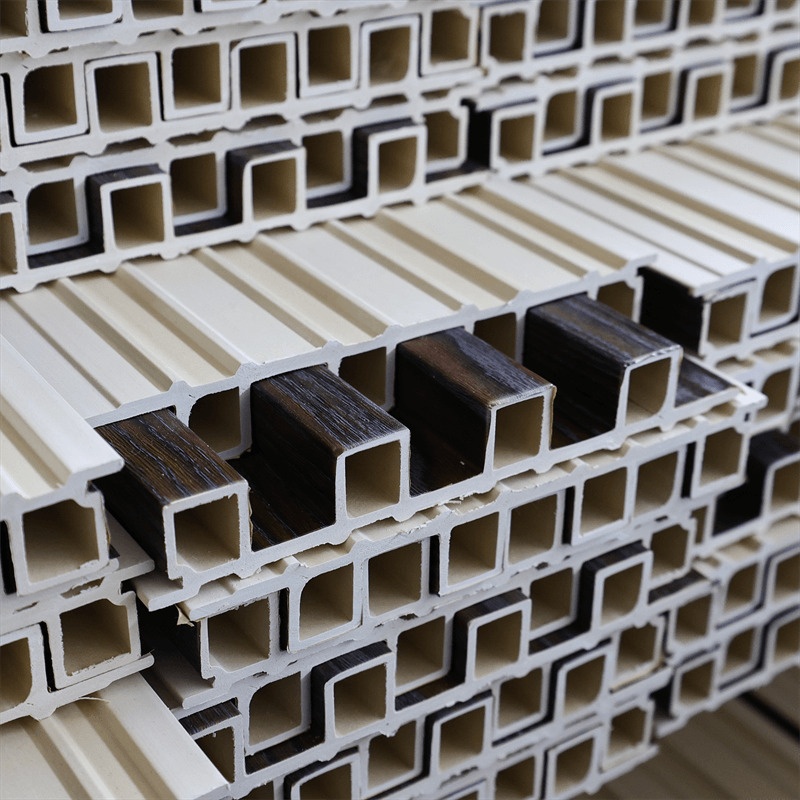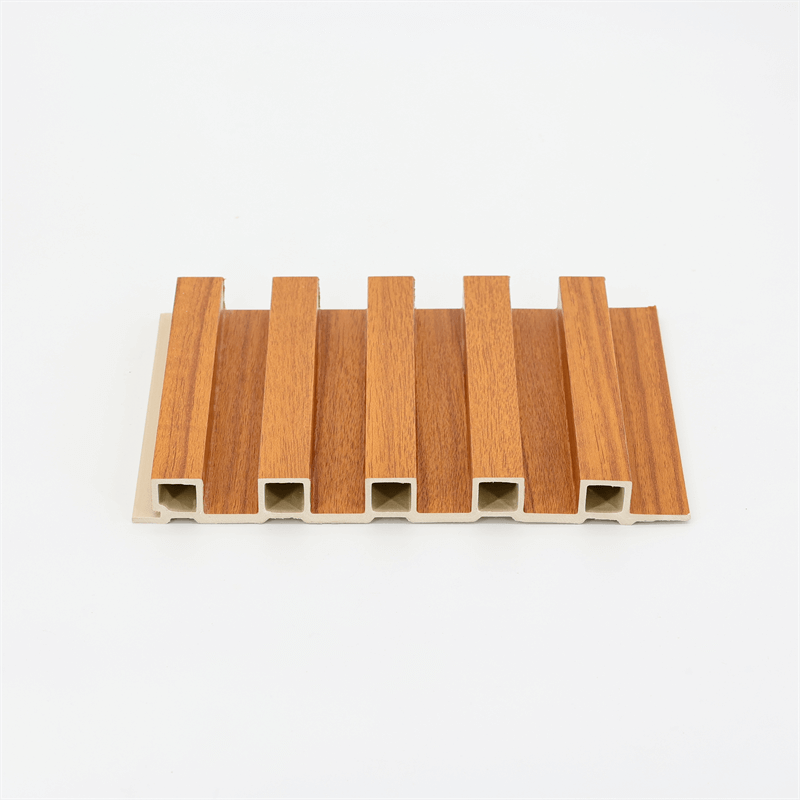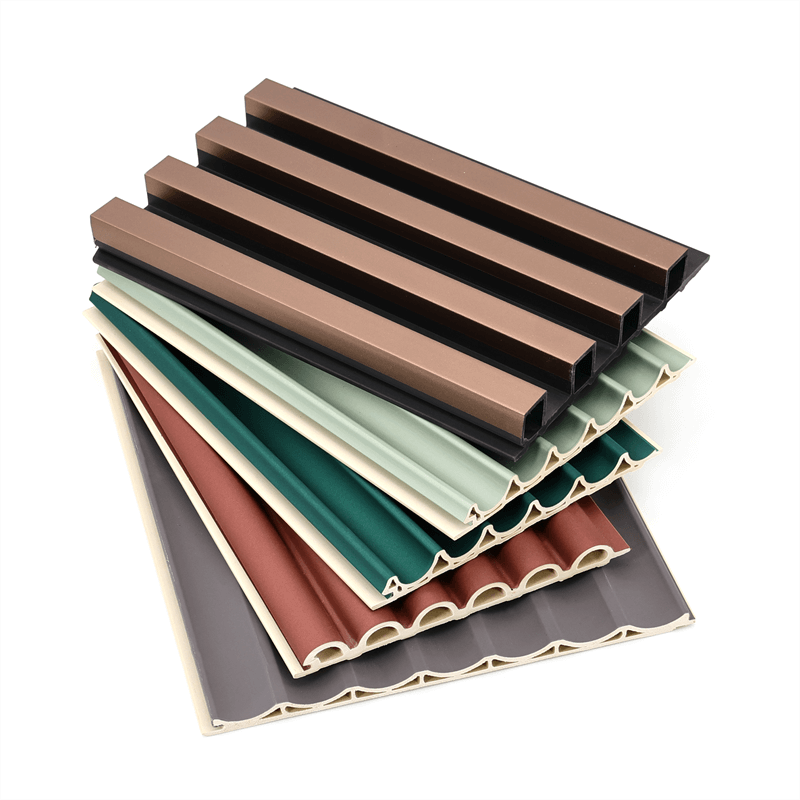Exterior cladding is a crucial element in the design and functionality of residential buildings. It not only protects the structure from the elements but also contributes to the overall aesthetic appeal.
Wood-Plastic Composite (WPC) wall panels have emerged as a game-changer in the realm of exterior cladding, offering a unique set of advantages over traditional materials.
This essay explores how WPC wall panels are redefining exterior cladding for residential buildings, focusing on their durability, sustainability, design versatility, and weather resistance.
By harnessing the potential of WPC panels, architects and homeowners can create visually stunning and long-lasting exteriors that redefine the concept of residential cladding.
Furthermore, the installation of WPC wall panels can enhance the structural integrity of residential buildings.
These panels provide an additional layer of protection against moisture infiltration, which can lead to structural damage and mold growth.
By preventing water penetration, WPC panels help maintain the integrity of the building envelope, ensuring a safe and healthy living environment for homeowners.
WPC wall panels have revolutionized the concept of exterior cladding for residential buildings, offering a sustainable, durable, and visually appealing alternative to traditional materials.
The use of WPC panels not only enhances the aesthetic appeal and functionality of residential exteriors but also contributes to a greener and more sustainable construction industry.
Homeowners can enjoy the benefits of durability, low maintenance, energy efficiency, and cost savings, while also reducing their environmental footprint.
As the demand for eco-friendly and innovative building materials continues to rise, WPC wall panels have proven to be a game-changer in redefining exterior cladding for residential buildings, offering a sustainable style that aligns with the values and aspirations of modern homeowners.

I. Durability: Longevity and Low Maintenance
WPC wall panels offer exceptional durability, making them an ideal choice for residential exterior cladding.
These panels are designed to withstand the harshest weather conditions, including intense heat, rain, snow, and UV radiation.
Unlike traditional wood or vinyl cladding, WPC panels are resistant to rot, warping, and splintering, ensuring their longevity and reducing the need for frequent repairs or replacements.
Furthermore, their low-maintenance nature eliminates the need for painting, staining, or sealing, saving homeowners time, effort, and ongoing maintenance costs.
Furthermore, the use of WPC wall panels in residential buildings goes beyond their practical and aesthetic benefits.
These panels contribute to the overall sustainability and eco-friendliness of the construction industry.
By choosing WPC panels, homeowners actively participate in reducing deforestation, as these panels utilize recycled wood fibers and minimize the need for harvesting new timber.
This sustainable approach helps conserve natural resources and protect the environment for future generations.
II. Sustainability: A Greener Alternative
In an era of increasing environmental awareness, sustainability has become a critical factor in building design. WPC wall panels provide a greener alternative to traditional cladding materials.
They are composed of a blend of recycled wood fibers and plastic, reducing the demand for virgin materials and diverting waste from landfills.
The production process of WPC panels consumes less energy and water compared to other cladding options, making them a more environmentally friendly choice.
By opting for WPC panels, homeowners can contribute to a more sustainable future without compromising on aesthetics or performance.
Moreover, the manufacturing process of WPC panels produces fewer greenhouse gas emissions compared to traditional cladding materials, further reducing the carbon footprint of residential buildings.
The longevity and low maintenance requirements of WPC panels also contribute to sustainability by minimizing waste generation and the need for frequent replacements.
III. Design Versatility: Creating Unique Exteriors
WPC wall panels offer unparalleled design versatility, allowing homeowners to create unique and visually stunning exteriors.
These panels come in a variety of sizes, shapes, colors, and finishes, enabling architects and homeowners to unleash their creativity and bring their design visions to life.
Whether it’s a contemporary, minimalist look, a rustic and natural aesthetic, or a bold and vibrant statement, WPC panels can be customized to suit any architectural style or personal preference.
The ability to mimic the appearance of natural materials, such as wood or stone, adds a touch of elegance and sophistication to residential exteriors.
In terms of long-term benefits, WPC wall panels offer homeowners cost savings. Their durability and resistance to rot, decay, and insect damage mean that they require minimal upkeep and replacement costs over time.
The low-maintenance nature of WPC panels translates into reduced maintenance and repair expenses, allowing homeowners to allocate their resources towards other aspects of their homes or personal needs.
IV. Weather Resistance: Protection and Performance
Residential buildings need exterior cladding that can withstand the elements and provide reliable protection.
WPC wall panels excel in weather resistance, making them an ideal choice for residential exteriors.
These panels are engineered to resist moisture, mold, mildew, and insect infestation, ensuring the integrity and longevity of the building envelope.
Additionally, WPC panels have excellent dimensional stability, meaning they won’t expand or contract significantly with temperature changes, reducing the risk of cracking or warping.
The weather resistance of WPC panels guarantees the long-term performance and aesthetic appeal of residential exteriors.
Additionally, WPC wall panels can contribute to the energy efficiency of residential buildings.
Their thermal properties help regulate indoor temperatures, reducing the need for excessive heating or cooling and lowering energy consumption.
This energy-saving feature not only benefits homeowners financially but also reduces the overall environmental impact of the building.
WPC wall panels are revolutionizing the concept of exterior cladding for residential buildings.
Their durability, sustainability, design versatility, and weather resistance make them a superior alternative to traditional cladding materials.
By choosing WPC panels, homeowners can create visually stunning and long-lasting exteriors that redefine the aesthetics and functionality of residential buildings.
These panels offer exceptional durability, requiring minimal maintenance over their lifespan. Moreover, the use of recycled materials in their production contributes to a greener and more sustainable future.
The design versatility of WPC panels allows for endless possibilities, enabling architects and homeowners to create personalized and unique exteriors.
Finally, the weather resistance of WPC panels ensures reliable protection and performance in the face of harsh environmental conditions.
As the demand for sustainable and visually striking residential exteriors continues to rise, WPC wall panels are at the forefront of redefining exterior cladding, offering a winning combination of aesthetics, durability, and environmental responsibility.

In addition to their practical advantages, WPC wall panels also enhance the curb appeal and overall aesthetic of residential buildings.
These panels can be customized to match various architectural styles, allowing homeowners to achieve their desired look and create a cohesive exterior design.
Whether it’s a traditional, contemporary, or eclectic style, WPC panels offer the flexibility to complement and elevate the architectural vision of the home.
Furthermore, the installation process of WPC wall panels is relatively straightforward and efficient.
The panels can be easily installed using a variety of methods, including direct adhesion, mechanical fastening, or clip systems.
This ease of installation translates to shorter construction time and reduced labor costs, making WPC panels an attractive option for homeowners and builders alike.
Another notable advantage of WPC wall panels is their ability to provide insulation benefits.
These panels have excellent thermal properties, helping to regulate the temperature inside the building and improve energy efficiency.
By reducing heat transfer and minimizing air leakage, WPC panels contribute to a more comfortable living environment and can potentially lead to lower energy bills.
Moreover, WPC wall panels offer homeowners the opportunity to express their individual style and creativity through various design options.
The panels can be textured, embossed, or even printed with patterns and designs, allowing for personalized and unique exteriors.
Additionally, WPC panels can be combined with other materials such as glass, metal, or brick to create visually striking and dynamic facades that stand out in the neighborhood.
In conclusion, WPC wall panels have redefined the concept of exterior cladding for residential buildings.
Their durability, sustainability, design versatility, weather resistance, and insulation properties make them a superior choice for homeowners and architects seeking both functional and aesthetic benefits.
By incorporating WPC panels into their residential exteriors, homeowners can create visually stunning, long-lasting, and energy-efficient homes that reflect their personal style and contribute to a sustainable future.
As the demand for innovative and eco-friendly building materials continues to grow, WPC wall panels are poised to play a pivotal role in shaping the future of exterior cladding, redefining residential buildings with their unique combination of beauty, performance, and sustainability.

